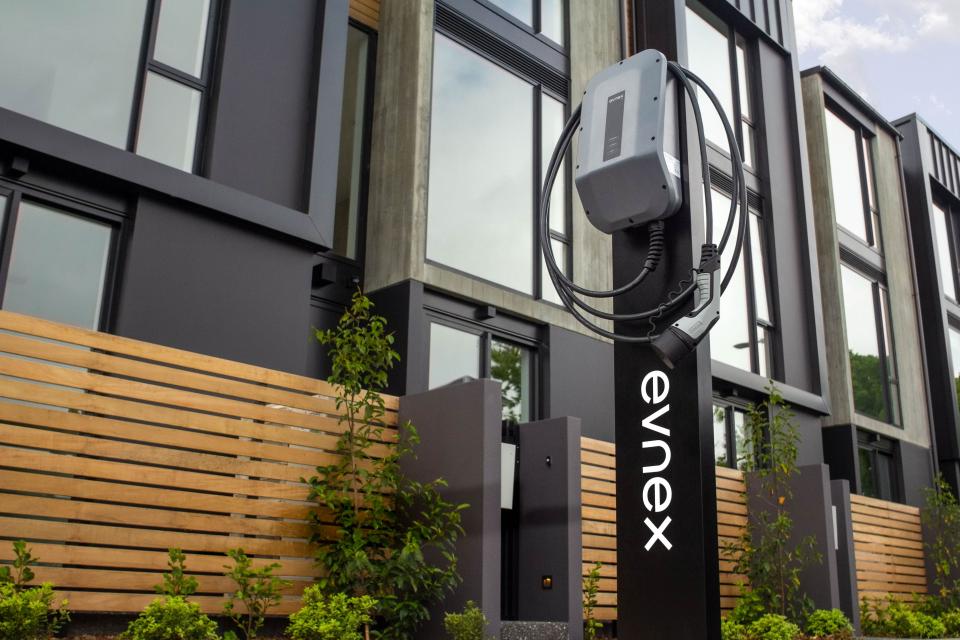Christchurch’s Evnex is heading across the Tasman as it expands its charging network across Australasia and is poised to make significant inroads into the Australian market - focusing on homes with EVs and solar power systems.
Evnex makes EV chargers that use smart technology to enable drivers to choose the best time for their EV to charge without having to remember to plug in at that time. It aims to reduce pressure on electricity grid infrastructure, help EV owners utilise cheaper electricity rates, and employ renewable energy like home solar. It has encouraged and promoted the use of smart charging technology since its inception in 2014 and advocates for smart charging regulation.
It facilitates a rapidly growing network of over 2,500 chargers in New Zealand, and the company is already installing its smart chargers in homes across Australia. Founder Ed Harvey says the Australian market differs from New Zealand in that nearly a third of households across the Tasman have solar, which makes smart charging even more attractive.
“Evnex can help people take advantage of solar, harnessing locally generated power to charge their EVs cost effectively while also prioritising the environment. Instead of returning excess energy generated back to the grid, people can choose to divert it to charge their EV from 100 percent renewable energy,” he says.
“New research by the Electric Vehicle Council has revealed Australia is tracking towards the milestone of 100,000 electric vehicles, with over 83,000 already on the road, compared with just 44,000 at the beginning of 2022. The Council also reported in their latest survey of Tesla Owners that around half of said they used home solar to charge their car so there is a significant market to be explored”.
The increase reinforces the importance of smart charging, Harvey says, as without it, there is a risk that rapid EV growth needlessly increases demand on non-renewable energy sources.
“The vehicles may not generate emissions, but without smart charging awareness, the power used to charge those vehicle may be doing so. The Electric Vehicle Council says a near-fully zero-emission fleet will be needed by 2050 to meet national emissions targets, but considering how those vehicles are charged, and what this will do to Australia’s grid infrastructure is vital”.
Evnex has currently installed residential chargers in Victoria, South Australia, Western Australia, New South Wales and Queensland, with demand growing. They’re also building their team on the ground to provide the same level of local support to Australian customers as in New Zealand. The business is also fielding commercial interest after successfully powering multiple business fleets in NZ, including government organisations such as Northland District Health Board.
Harvey says futureproofing EV charging is a pressing issue in Australia as well as in New Zealand. “We’ve seen EV demand grow quickly this year. In the future, these vehicles will impact electricity industries in a number of ways, requiring new innovations in technology and regulation.
“The decisions we make now will help ensure that the right infrastructure is in place to reduce the peaks in charging demand and minimise future network reinforcement costs, whether that’s in NZ, Australia or beyond,” he says.
Evnex has also recently introduced its Electricity Pricing tool, designed to make it as simple as possible for EV owners to manage and track charging costs and gain an accurate picture of in-home charging expenses.
Find out more at Evnex Smart EV Chargers.


